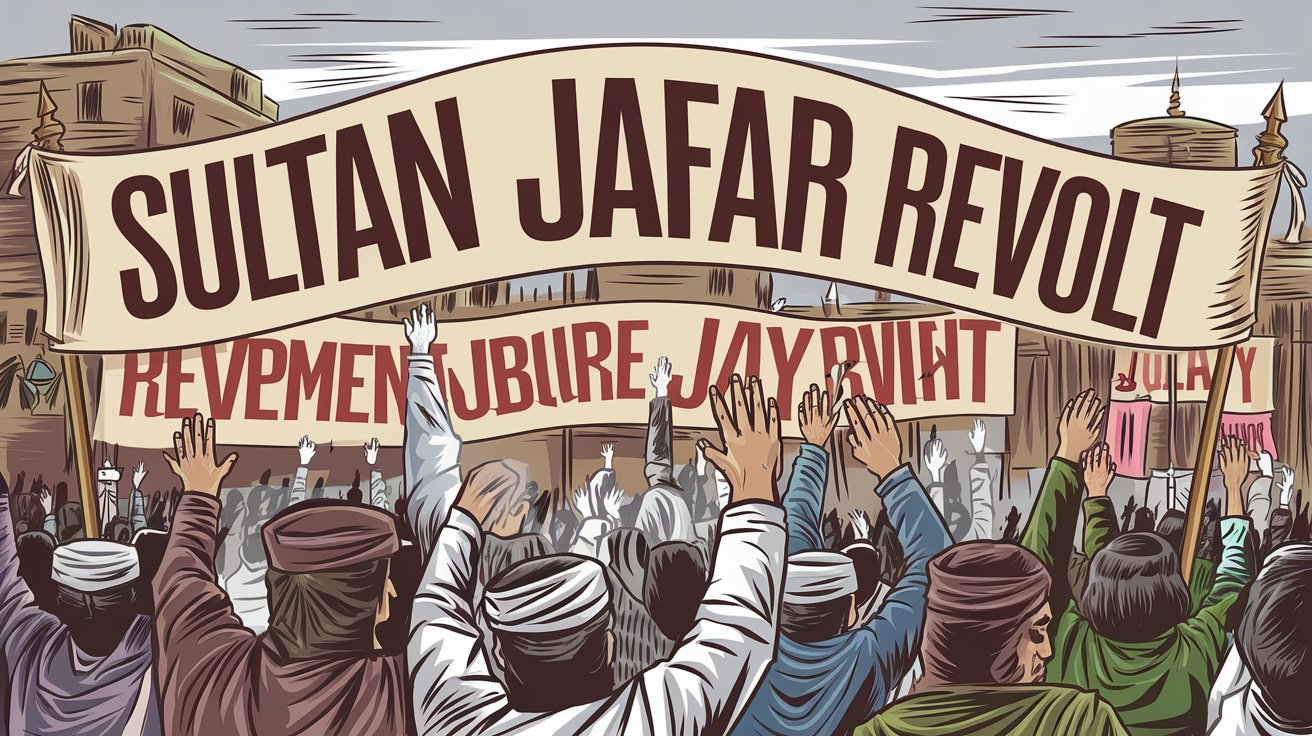
Who was Jafar Sultan and what was his revolt all about? Jafar Sultan was a Kurdish leader who led a significant uprising against the Iranian government in the early 20th century. His revolt, known as the Jafar Sultan Revolt, took place between 1929 and 1931. The main goal was to gain autonomy for the Kurdish people and resist the centralization policies of Reza Shah Pahlavi. Jafar Sultan's efforts were marked by fierce battles, strategic alliances, and a deep sense of Kurdish nationalism. Although the revolt was eventually suppressed, it remains a crucial chapter in Kurdish history, symbolizing the ongoing struggle for self-determination and cultural identity.
Key Takeaways:
- The Jafar Sultan Revolt, led by Kurdish leader Jafar Sultan in 1926, sparked a political awakening among Kurds, shaping their demands for autonomy and rights.
- The revolt resulted in significant casualties and displacement, but also showcased the Kurdish community's cultural resilience and inspired future generations to stand up against oppression.
The Jafar Sultan Revolt: An Overview
The Jafar Sultan Revolt stands as a significant event in Middle Eastern history. This uprising, led by Jafar Sultan, was a pivotal moment that shaped the region's political landscape. Here are some fascinating facts about this historical event.
-
Jafar Sultan's Leadership
Jafar Sultan, a prominent Kurdish leader, spearheaded the revolt. His charisma and strategic acumen rallied many to his cause. -
Year of the Revolt
The revolt began in 1926, a time of great political upheaval in the Middle East. -
Geographical Focus
The uprising primarily took place in the Pahlavi dynasty's territory, particularly in the regions of Lorestan and Kermanshah. -
Cause of the Revolt
The revolt was fueled by dissatisfaction with the central government's policies, which marginalized Kurdish communities. -
Support from Tribes
Several Kurdish tribes, including the Jaff tribe, supported Jafar Sultan, providing manpower and resources.
Key Events During the Revolt
The Jafar Sultan Revolt was marked by several key events that defined its course. These events highlight the intensity and complexity of the conflict.
-
Initial Skirmishes
The revolt began with small skirmishes between Kurdish fighters and government forces. -
Major Battles
Significant battles, such as the Battle of Paveh, saw heavy casualties on both sides. -
Capture of Key Towns
Jafar Sultan's forces managed to capture several key towns, disrupting government control. -
Government Response
The central government responded with a military crackdown, deploying troops to suppress the uprising. -
International Attention
The revolt drew international attention, with foreign powers monitoring the situation closely.
Impact on the Kurdish Community
The Jafar Sultan Revolt had a profound impact on the Kurdish community, both during and after the conflict. These effects are still felt today.
-
Casualties
The revolt resulted in significant casualties, with many Kurdish fighters and civilians losing their lives. -
Displacement
Many Kurdish families were displaced due to the conflict, leading to long-term social and economic challenges. -
Cultural Resilience
Despite the hardships, the Kurdish community demonstrated remarkable cultural resilience, preserving their traditions and identity. -
Political Awakening
The revolt sparked a political awakening among Kurds, leading to increased demands for autonomy and rights. -
Legacy of Jafar Sultan
Jafar Sultan became a symbol of Kurdish resistance and pride, inspiring future generations.
The Aftermath of the Revolt
The aftermath of the Jafar Sultan Revolt saw significant changes in the region's political and social landscape. These changes continue to influence the area today.
-
Government Reforms
In response to the revolt, the central government implemented several reforms aimed at addressing Kurdish grievances. -
Military Presence
The government increased its military presence in Kurdish regions to prevent future uprisings. -
Negotiations and Treaties
Several negotiations and treaties were attempted to bring peace, though many were short-lived. -
Economic Impact
The conflict had a lasting economic impact, disrupting trade and agriculture in the affected areas. -
Educational Initiatives
Efforts were made to improve education in Kurdish regions, though progress was slow.
Historical Significance
The Jafar Sultan Revolt holds significant historical importance, influencing both regional and global perspectives on Kurdish issues.
-
Symbol of Resistance
The revolt is remembered as a symbol of resistance against oppression and injustice. -
Academic Interest
Historians and scholars continue to study the revolt, contributing to a deeper understanding of Kurdish history. -
Cultural Representations
The revolt has been depicted in various cultural forms, including literature, music, and film. -
Influence on Modern Movements
Modern Kurdish movements often draw inspiration from the Jafar Sultan Revolt, highlighting its enduring legacy. -
Commemoration
The revolt is commemorated annually by Kurdish communities, honoring the sacrifices made by their ancestors.
Final Thoughts on Jafar Sultan's Revolt
Jafar Sultan's revolt stands as a significant chapter in history. His actions, driven by a desire for autonomy and justice, left a lasting impact on the region. The revolt highlighted the complexities of colonial rule and the lengths to which individuals would go to fight for their rights. Understanding these events helps us appreciate the struggles and sacrifices made by those who came before us. It also serves as a reminder of the importance of resilience and determination in the face of oppression. By learning about Jafar Sultan and his revolt, we gain a deeper insight into the broader historical context and the enduring spirit of resistance. This knowledge not only enriches our understanding of the past but also inspires us to continue striving for justice and equality in our own lives.
Frequently Asked Questions
Was this page helpful?
Our commitment to delivering trustworthy and engaging content is at the heart of what we do. Each fact on our site is contributed by real users like you, bringing a wealth of diverse insights and information. To ensure the highest standards of accuracy and reliability, our dedicated editors meticulously review each submission. This process guarantees that the facts we share are not only fascinating but also credible. Trust in our commitment to quality and authenticity as you explore and learn with us.
